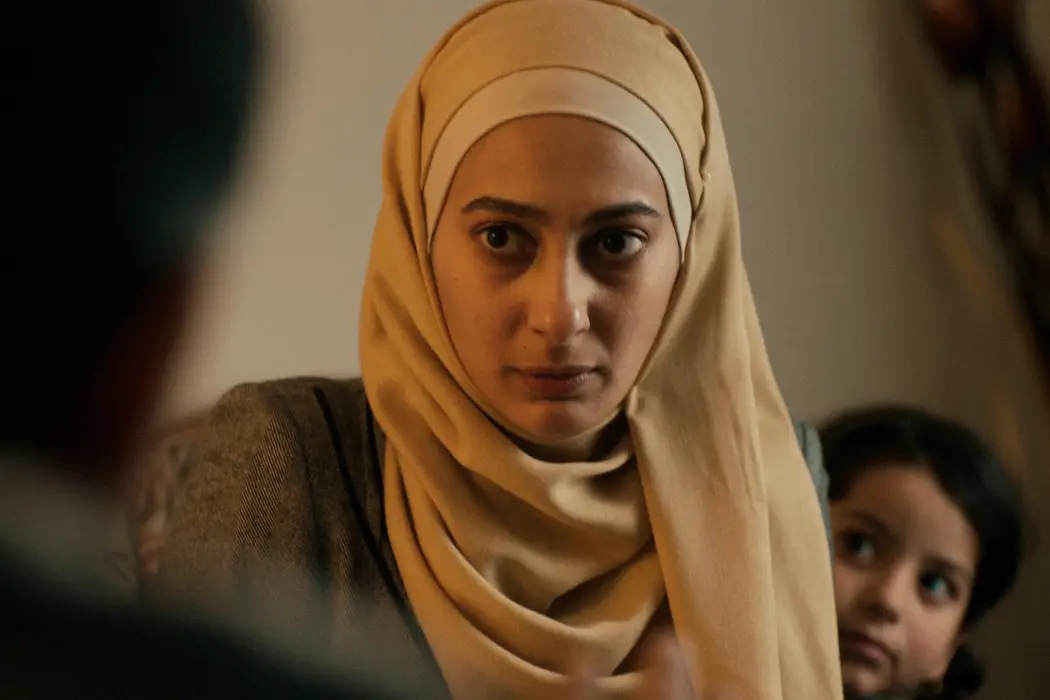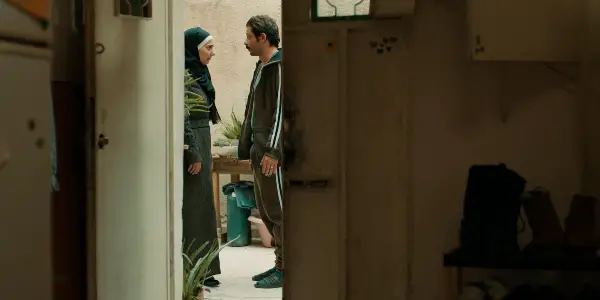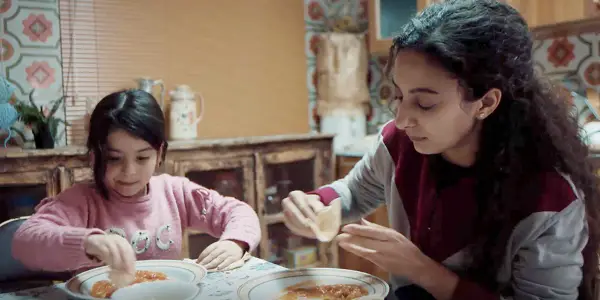Cannes Film Festival 2023: INSHALLAH A BOY

Stephanie Archer is 39 year old film fanatic living in…
Inshallah A Boy has thus far been one of my favorite films of the 2023 Cannes Film Festival – and one I feel needs more attention than it has received. Coming out of Jordan, Amjad Al Rasheed‘s Inshallah A Boy follows a young woman struggling to navigate life in the aftermath of her husband’s death. In a culture and a country where her options and rights are limited, Nawal finds the strength of self and faith of God to navigate a world dominated by men – a world where pregnancy is your only hope. Boasting gorgeous cinematography and a profound performance by, Inshallah A Boy becomes an instant hidden gem of the 2023 Cannes Film Festival.
Finding Strength in the Darkest Moments
There is a sweet and loving nature to the opening of Inshallah A Boy. You can feel the love and security between Nawal (Mouna Hawa) and her husband, a sense of mutual understanding living just below the surface. As Nawal tries to convince her husband to work on conceiving a child, he expresses his extreme exhaustion and needs for sleep. As night turns to morning, Nawal works to get her family out the door calling both her daughter and her husband. Tragedy takes hold as she discovers her husband has died in his sleep, the film taking in not only the grief of a lost loved one, but the isolation immediately felt in the wake of his death.

The film works well to create the relationship between Nawal and her husband, their brief moments of dialogue and fertility challenges speak volumes that reinforce the depth of tragedy in his loss. Compassion and empathy are effectively captured in the emotions of the audience, further reinforced as we find Nawal only comforted by the women in the area, the men giving her husband the final moments of his resting place. Death creates an immediate separation, not just between life and death but between inclusion and isolation. Nawal is given a small plastic bag of the items her husband had at the time of his death, her brother offers to “allow” his wife to stay with her for the night if she needs someone.
As we watch Nawal push through her emotions, we grieve for her as she must return to her job as a nurse for a local wealthy family within days of her husband’s passing. Yet, as heartbreaking as it is watching her suppress her emotions for the care of others, Inshallah A Boy expertly crafts its crescendo of oppression as Nawal is informed of her husband’s debts due for a pickup truck he owned and his firing from his job four months earlier. As Nawal tries to prove that she helped pay for the truck and the apartment she and her daughter now live in, her lack of documentation and the laws of inheritance threatens everything she holds dear. As the threads of her life begin to fray, Nawal will do all that she can to fight for inheritance – or lose everything in the process.
Powerful Fight and Performance
When we speak of inheritance, the idea of fighting for money comes to mind. Yet, Inshallah A Boy does not focus strictly on the financial aspects of inheritance, but on the vital nature it encompasses. For Nawal, losing her inheritance means losing her home and custody of her daughter to the male members of the family. In essence, without her husband, Nawal is seen as having nothing, a token of a past life to be passed on to the next suitor. And where Inshallah A Boy redrafts the idea and importance of inheritance, it also takes into focus all that Nawal is willing to sacrifice, intentionally and unintentionally, to secure both her and her daughter’s future. It becomes a visceral watch as each moment ticks by and the stakes are raised higher and higher. I found that I could not look away and Mouna Hawa solidifies my investment and commitment until the credits role.

Delivering a quietly captivating performance, Hawa fully encapsulates both the grief and the tension that constantly ruminate through Nawal. Yet, as it seems she may be growing in her own emotions and overwhelming situation, Hawa harnesses a quiet and growing sense of resilience for her Nawal. Her Nawal is pious and shy, yet determined and resolved. She does not go quietly into the night, rather navigating a world controlled by men and religion, carving out a corner all her own. Hawa owns her role in this film, demanding the attention of her audience, and is one of the reasons it finds its depth of success.
Inshallah A Boy is just as shy and pious as its subject. Much like Nawal, the film parallels her, growing in strength and commitment to its final resolution. As each trial and tribulation comes to pass, Inshallah A Boy hones in on the trials and tribulations in Jordan – where pregnancy becomes your only bargaining chip. And while the film weighs heavily on the emotional toll of its narrative, it also takes a moment to look at the solidarity of women and the justification of sin. Women standing together has the potential to accomplish more than standing apart, and too often, the idea of right and wrong is never as black and white as it seems. That even something as simple as a pick-up truck can be the difference between oppression and freedom.
Conclusion:
Honestly, I am loving the content coming out of the Middle East over the last few years. It is visceral and urgent, and Amjad Al Rasheed‘s Inshallah A Boy is no exception. With its gorgeous cinematography and an incredible performance from Mouna Hawa, Inshallah A Boy proves that freedom is in the fight.
Watch Inshallah A Boy
Does content like this matter to you?
Become a Member and support film journalism. Unlock access to all of Film Inquiry`s great articles. Join a community of like-minded readers who are passionate about cinema - get access to our private members Network, give back to independent filmmakers, and more.













